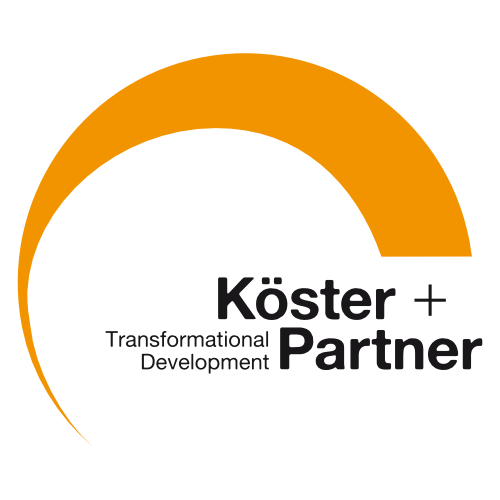About being corafa – How does an agile mindset look like?
There is a lot of talk about transformation and going agile. The basis for making a transformation successful is: developing a pro-change attitude and translating it into new behavior.
How can this attitude look like?
It’s the qualities of a corafa-being: Being courageous, open-minded, resilient, appreciative, focused and action-oriented (= corafa).
And what exactly does this mean?
Let’s dive into a couple of sequences taken from the life of a corafa-being.
1. Courageous – Feedback
Susan bumps into two of her colleagues, Heidi and Katrin, on the corridor.
| Non-corafa | Corafa |
|---|---|
| Heidi asks Susan: “Wouldn’t you like to take over our Go-Green-Project? Janine is really screwing it up.“ Susan: “Not a surprise… I am totally overloaded, but I think that we don’t have another choice. I’ll take care of the ‘go-green’ – good that you’ve talked to me.” | Instead of joining the gossip about Janine and feeling flattered by the offer, Susan retorts: „Have you talked to Janine about your concerns? If not, I’ll go to see her now and talk with her. Otherwise, nothing will ever change.“
|
2. Open-Mindedness – Experiment
Manfred is a member of a product innovation team.
Non-corafa |
Corafa |
|---|---|
| In the middle of a meeting where one of his colleagues presents his ideas for a new product line, Manfred loses his temper: “Come on. If it was that easy, others would have tried it before.“
|
Instead of blocking the new idea off, Manfred says: “Ok, I’ve never thought of doing it that way. Would be too good if it was that easy. But, I’ll check it out and let you know tomorrow in our morning meeting.” In the morning meeting, Manfred shares the result of his experiment. Amazingly, it had worked, with a bit of fine-tuning from his side. |
3. Resilience – Opportunity
Marc receives an email-invitation to meet the head of his Business Unit. He met that man just once before, ages ago. There was no agenda attached to the invitation.
Non-corafa |
Corafa |
|---|---|
| Marc can’t sleep well. He is haunted by thought carousels such as: “What does the boss want from me? What if my main project was cancelled? Or even worse, what if I was laid-off?” | Marc is surprised. The unit head sends him an email. How long has he waited for another opportunity to meet him in person. He’s excited, and also a bit nervous: “I am really curious what he wants to talk about with me. Maybe I can take the opportunity and discuss my thoughts of a co-working space.” |
4. Appreciation – Sharing
The team has put in three long nights to finish a software change that the customer requested extremely short term. Day four, the feature is finished and the team gathers in the kitchen.
Non-corafa |
Corafa |
|---|---|
| Michael, the manager of the project, addresses his team: „Well, this was hard work, but this is what we all get paid for. Let’s hope that we do not get into time pressure again.”
|
Michael buys pizza and beer for his team and says: “I’m really grateful that you have put in all the extra effort. This morning, I’ve talked with our customer – all works fine, and they say thank you, too.” |
5. Focus – Priority
The company has been growing at an enormous pace for 24 months. Everybody is stretched and capacities are overbooked. A new customer is at the horizon with special requests for product features. In the weekly meeting, the team leader asks Martin to get in touch with this new potential customer.
Non-corafa |
Corafa |
|---|---|
| Martin silently thinks: „I have no clue, when I shall do this. There is not a single free slot in my schedule. I’m so stressed that I can’t sleep well, and my partner complains about me always returning home when the children are already asleep.“ While having those thoughts, he replies: “Ok, I’m really busy, but I know it’s an important opportunity we shouldn’t miss. I’ll get in touch with that guy.” | Martin explains: „Ok, when I take care of this new customer, I cannot compile the sales figures, and I can’t finish the concept for our new creative space by the end of this week. Is this ok with everybody? If not, what should I prioritize?“
|
6. Action-Orientation – Meeting marathon
Jeanette feels a growing pain: Since she has become team leader, she is buried under thousands of emails, and requests for endless meetings are piling up. She is increasingly unhappy and feels stressed.
Non-corafa |
Corafa |
|---|---|
| Jeanette opens her laptop in the middle of yet another unproductive meeting where Jean-Paul incessantly talks about his great achievement to reach their zero defect target. She really has other things to do, e.g. browsing through her emails. She texts her friend and cancels their jogging round for the evening.
|
Jeanette has had it. She cannot afford to spend her entire working day in unproductive meetings and make up for the lost time in the evenings. She informs her peers and seniors that she only will be available for meetings where her input is absolutely needed. She requests a meeting agenda with bullets to be prepared for quick decision taking. Jeanette reflects on the result of her move: At the beginning, her colleagues took it personal. Some became even angry. After a while, though, they sent out agendas and only invited her for meetings she could contribute to. She saved between 1-2 hours each day. Others gradually followed her example. |
Is it worthwhile becoming a corafa?
Think about it: Wouldn’t it be more joyful and productive if your co-workers were acting in a corafa way? It’s certainly difficult to make the first move. It takes a lot of courage. But nothing will change, if you don’t go first. Transformation reflects an attitude, a mindset. Leading by example is a way to translate this mindset into daily action. The beauty of it: you don’t have to wait until somebody else takes action. You can start whenever you decide to. Everybody can be corafa. Everybody can be a transformational leader.
A proven and joyful method to develop an agile mindset is provided in: The United States of You.




